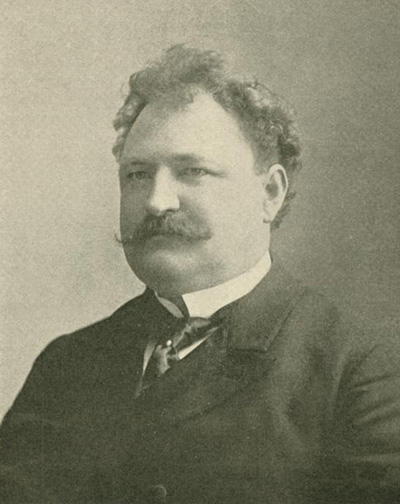Search Results - Krehbiel, Henry Edward, 1854-1923
Henry Edward Krehbiel
 Henry Edward Krehbiel (10 March 1854 – 20 March 1923) was an American music critic and musicologist who was the chief music critic of ''The New York Tribune'' for more than forty years. Along with his contemporaries Richard Aldrich, Henry Theophilus Finck, W.J. Henderson and James Huneker, Krehbiel is considered part of the 'Old Guard', a group of leading New York–based music critics who first established a uniquely American school of criticism. A critic with a strong bend towards empiricism, he frequently sought out first-hand experiences, accounts and primary sources when writing; drawing his own conclusions rather than looking to what other writers had already written. A meliorist, Krehbiel believed that the role of criticism was largely to support music that uplifted the human spirit and intellect, and that criticism should serve not only as a means of taste making but also as a mode to educate the public. His book ''How to Listen to Music'' (in print from 1896 to 1924) was widely used as an instructional guide by the music consuming public in the United States during the last years of the 19th century and first several decades of the 20th century.
Henry Edward Krehbiel (10 March 1854 – 20 March 1923) was an American music critic and musicologist who was the chief music critic of ''The New York Tribune'' for more than forty years. Along with his contemporaries Richard Aldrich, Henry Theophilus Finck, W.J. Henderson and James Huneker, Krehbiel is considered part of the 'Old Guard', a group of leading New York–based music critics who first established a uniquely American school of criticism. A critic with a strong bend towards empiricism, he frequently sought out first-hand experiences, accounts and primary sources when writing; drawing his own conclusions rather than looking to what other writers had already written. A meliorist, Krehbiel believed that the role of criticism was largely to support music that uplifted the human spirit and intellect, and that criticism should serve not only as a means of taste making but also as a mode to educate the public. His book ''How to Listen to Music'' (in print from 1896 to 1924) was widely used as an instructional guide by the music consuming public in the United States during the last years of the 19th century and first several decades of the 20th century.As a critic he was particularly complimentary of German romanticism, and was a great admirer and promoter in the United States of Beethoven, Brahms, Mendelssohn, Schumann, and especially Richard Wagner and his musical theories. He was a close friend and admirer of the conductor Anton Seidl who greatly enhanced his appreciation for Wagner and his music, and whose work he gave his most complimentary reviews. He was not so complimentary to Wagner's main successors: Richard Strauss and Gustav Mahler, and was also critical towards French impressionism and works of the Italian school.
Krehbiel was a champion of the music of Antonín Dvořák whom he hoped would help establish an authentically American school of music when Dvořák was appointed head of the National Conservatory of Music of America in New York City in 1892. Already an admirer of folk music, Krehbiel was inspired by Dvořák's work as a folk song collector and composer, and spent many years researching and collecting folk songs from Americans and immigrants. He collected the folk songs of Magyars, Scandinavians, Russians, Native Americans, and African Americans. This work resulted in numerous publications, including the first music history book published on African-American spirituals: ''Afro-American folksongs: a study in racial and national music'' (1914). He also served as annotator for the programs of the concerts by the New York Philharmonic, and translated several German opera libretti for performance or publication in English. He also translated Alexander Wheelock Thayer's seminal three volume German language biography on Beethoven for its 1921 English language publication. Thayer had left a planned fourth volume unwritten at the time of his death, and Krehbiel wrote a fourth volume to complete the series in his final years. It was published posthumously in 1925 for the second publishing of his English translation. Provided by Wikipedia
